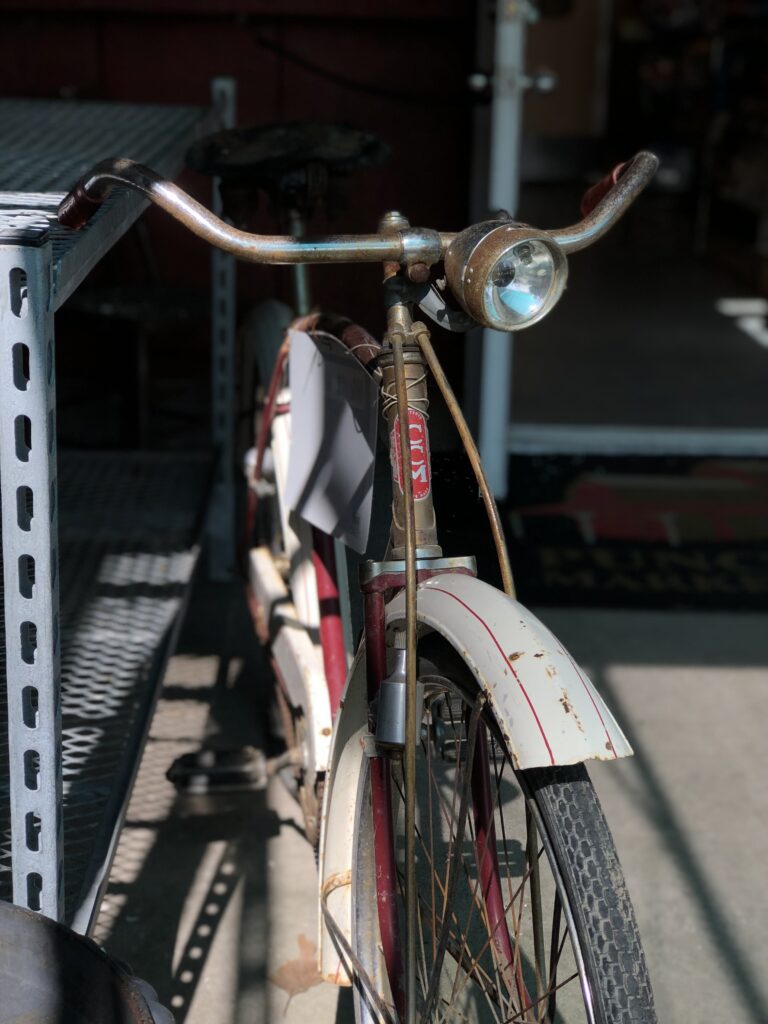Have you ever wondered how to keep your exhaust system from rusting? It’s a common concern for many car owners, as rust not only affects the appearance of your vehicle but can also lead to serious damage and expensive repairs. In this article, we will explore some simple yet effective tips to help you prevent rusting in your exhaust system, ensuring that your car stays in top shape for years to come. So, if you’re ready to learn how to protect your exhaust system from rust, let’s get started!

Understanding the Causes of Rust Formation
Rust formation in exhaust systems is an issue that many vehicle owners face. It not only affects the appearance of the exhaust but can also lead to serious damage if left untreated. To effectively prevent rust, it is important to understand its causes.
Causes of rust in exhaust systems
There are several factors that contribute to the formation of rust in exhaust systems. One of the main causes is the exposure to moisture and corrosive substances. When driving, your vehicle is subjected to various weather conditions, such as rain, snow, and road salt. These elements can come into contact with the exhaust system, causing it to rust over time.
Another common cause of rust is the high temperatures the exhaust system is exposed to. The constant heating and cooling cycles can lead to the breakdown of protective coatings, making the metal more vulnerable to rusting.
Factors accelerating rust formation
Certain factors can accelerate the formation of rust in exhaust systems. One such factor is driving in coastal areas where the air is salty. The salt particles in the air can corrode the metal more quickly, resulting in accelerated rusting.
Additionally, frequent short trips and stop-and-go driving can contribute to rust formation. During short drives, the exhaust system doesn’t reach its optimal operating temperature, causing moisture to accumulate and promoting rust.
Importance of Rust Prevention
Rust prevention is crucial when it comes to maintaining the performance and longevity of your exhaust system.
Impacts of rust on the exhaust system
Rust can have several negative impacts on the exhaust system. Firstly, it can cause the exhaust pipes to weaken over time, leading to leaks and potential hazards. These leaks not only affect the sound and emissions of your vehicle but can also result in reduced fuel efficiency.
Furthermore, rust can restrict the flow of exhaust gases, causing the engine to work harder. This can result in decreased power, reduced acceleration, and even engine damage if left unaddressed.
Costs associated with rust repairs
Repairing rust damage in an exhaust system can be costly, especially if the rust has spread extensively. The repair process may involve welding, replacing sections of the exhaust, or even a complete system replacement. These costs can quickly add up, making rust prevention a more cost-effective approach in the long run.
How rust affects vehicle performance
Rust not only affects the exhaust system itself but can also have a significant impact on overall vehicle performance. When the exhaust system is compromised due to rust, it can affect the engine’s ability to expel exhaust gases efficiently. This can result in decreased power, reduced fuel economy, and potentially even engine overheating.

Exhaust System Materials and Rust Resistance
The type of metal used in an exhaust system can play a significant role in its resistance to rust.
Types of metals used in exhaust systems
Exhaust systems are typically made from a variety of metals, including mild steel, aluminized steel, and stainless steel. Mild steel is the most common material used due to its cost-effectiveness, but it is also more susceptible to rust compared to other metals.
Aluminized steel, on the other hand, is a more rust-resistant choice. It consists of a layer of aluminum-silicon alloy coating, providing enhanced protection against rust and corrosion.
Stainless steel is the most rust-resistant material used in exhaust systems. It contains a high amount of chromium, which forms a protective layer on the surface, preventing rust formation.
How different metals react to rust
Mild steel, being the least rust-resistant material, is prone to surface rust and corrosion. Over time, this can lead to pitting and perforation, potentially compromising the integrity of the exhaust system.
Aluminized steel is more resistant to rust compared to mild steel. The aluminum-silicon layer acts as a barrier, protecting the underlying steel from rust and corrosion.
Stainless steel, as mentioned earlier, has excellent rust resistance. The chromium content in stainless steel forms a passive oxide layer when exposed to oxygen, preventing rust from forming.
Rust resistance in stainless steel exhaust systems
Stainless steel exhaust systems are highly sought after due to their exceptional rust resistance. They offer superior durability and longevity compared to other materials. While stainless steel systems may be more expensive initially, their resistance to rust can offset the cost by eliminating the need for frequent repairs or replacements.
Choosing a Rust-Resistant Exhaust System
When selecting an exhaust system, it is essential to consider its rust resistance capabilities.
Factors to consider when choosing a rust-resistant exhaust
There are several factors to take into account when choosing a rust-resistant exhaust system. Firstly, consider the material. Stainless steel systems offer the highest level of rust resistance, making them a reliable choice.
Additionally, consider the reputation of the manufacturer. Research different brands and read customer reviews to ensure you choose a reputable manufacturer known for producing high-quality, rust-resistant exhaust systems.
Rust-resistant exhaust system brands
Several reputable brands specialize in rust-resistant exhaust systems. Some well-known brands include Borla, MagnaFlow, Flowmaster, and Gibson. These manufacturers are known for their durable and rust-resistant exhaust systems, ensuring a reliable and long-lasting product.
Cost comparison of rust-resistant exhaust systems
While rust-resistant exhaust systems may come with a higher price tag compared to standard exhaust systems, they offer long-term cost savings by reducing the need for repairs or replacements. It is important to consider the upfront cost alongside the potential savings from a durable and rust-resistant system. Remember, investing in quality can save you money in the long run.

Preventative Measures to Avoid Rust
Taking proactive measures to prevent rust formation in your exhaust system can help prolong its lifespan.
Cleaning the exhaust system regularly
Regularly cleaning your exhaust system can prevent the buildup of dirt, moisture, and corrosive substances that contribute to rust formation. Use a mild detergent and a soft brush to remove any debris or residue. Ensure to rinse off all cleaning agents thoroughly and dry the system completely to prevent moisture accumulation.
Applying rust-inhibiting spray
Using a rust-inhibiting spray can provide an additional layer of protection to your exhaust system. These sprays typically contain anti-corrosive compounds that create a barrier between the metal surface and the surrounding environment, preventing rust formation. Follow the manufacturer’s instructions when applying the spray and reapply as needed, especially after driving in harsh weather conditions.
Parking in a dry and well-ventilated place
When not in use, parking your vehicle in a dry and well-ventilated area can help prevent the accumulation of moisture on the exhaust system. Avoid parking near bodies of water or in areas with high humidity, as this can increase the chances of rust formation.
Utilization of Exhaust Wraps or Coatings
Another effective method to prevent rust in the exhaust system is by utilizing exhaust wraps or coatings.
Benefits of exhaust wraps
Exhaust wraps offer several advantages when it comes to rust prevention. They provide insulation, reducing the heat transfer to surrounding components and minimizing temperature-induced corrosion. Additionally, wraps can protect the exhaust system from debris and moisture, helping to prevent rust formation.
How to apply exhaust wraps
To apply an exhaust wrap, start by cleaning the exhaust system thoroughly to remove any dirt or rust particles. Measure the length of the wrap needed and wrap it tightly around the exhaust pipes, ensuring there are no gaps or sagging. Secure the ends of the wrap with stainless steel zip ties or stainless steel wire. Make sure the wrap is evenly distributed and straight to avoid any hot spots or potential damage.
Available commercial exhaust coatings
In addition to exhaust wraps, there are various commercial exhaust coatings available in the market. These coatings are designed to provide an additional layer of protection against rust and corrosion. They typically contain heat-resistant compounds that adhere to the surface of the exhaust system, forming a protective barrier. Follow the manufacturer’s instructions when applying exhaust coatings for optimal results.
Periodic Inspection for Early Rust Detection
Performing regular inspections of your exhaust system can help identify early signs of rust and address the issue before it worsens.
Inspecting the exhaust system for early signs of rust
During your inspection, pay close attention to the surface of the exhaust pipes and muffler for any signs of rust. Look for discoloration, flaking paint, or the presence of red or brown spots, which are indicators of rust formation. Also, check for any signs of corrosion or damage to the protective coatings.
Where to look for rust on the exhaust system
Rust can occur on various parts of the exhaust system. Apart from inspecting the visible surfaces of the exhaust pipes and muffler, also check the areas where different components are connected, such as the clamps, brackets, and flanges. These are common areas for rust to develop due to moisture and the presence of different metals.
What to do when rust signs are detected
If you notice signs of rust during your inspection, it is important to take action promptly. Start by cleaning the affected area using a wire brush or sandpaper to remove any loose rust or corrosion. Once cleaned, apply a rust converter or rust-resistant paint to prevent further rust formation. If the rust is extensive or compromising the integrity of the exhaust system, it may be necessary to consult a professional for repair or replacement.
Replacement vs. Repair of Rusty Exhaust Systems
When faced with a rusty exhaust system, it is necessary to evaluate whether repair or replacement is the best course of action.
Evaluating whether to replace or repair a rusty exhaust
The decision to replace or repair a rusty exhaust system depends on the extent of the damage. If the rust is localized and hasn’t compromised the structural integrity of the system, repair may be a viable option. However, if the rust has spread extensively, causing leaks or weakening the pipes, a total replacement may be necessary to ensure optimal functionality and safety.
Cost-effectiveness of repair vs. replacement
Consider the cost-effectiveness of repair versus replacement when making your decision. Repairs may be more cost-effective in the short term, but if the rust continues to spread or recurs, it may result in recurring repair costs. On the other hand, investing in a new exhaust system, particularly a rust-resistant stainless steel one, can save you money in the long run by eliminating the need for frequent repairs or replacements.
Knowing when a total replacement is necessary
Certain signs indicate that a total replacement is necessary. Severe corrosion, widespread rust, or extensive damage to the exhaust system are all indicators that a replacement is needed. Additionally, if your vehicle is older and the exhaust system has already undergone multiple repairs, it may be more cost-effective and practical to invest in a new system rather than patching up a failing one.
In conclusion, rust formation in exhaust systems is a common issue that can have significant impacts on vehicle performance and longevity. By understanding the causes of rust, the importance of prevention, and the various preventative measures available, you can ensure the durability and reliability of your exhaust system. Whether it involves choosing a rust-resistant exhaust, utilizing protective measures, or promptly addressing any signs of rust, taking these proactive steps will keep your exhaust system in optimal condition, allowing you to enjoy a smooth and efficient driving experience for years to come.
